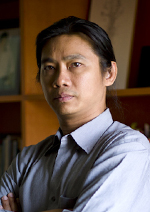In Myanmar, there are few things people dread more than the sudden appearance of rich businessmen in their town or village.
Ever since the country’s military rulers abandoned socialism in the wake of the 1988 pro-democracy uprising, well-connected cronies and other business partners of the all-powerful generals have been almost as feared as the men in uniform themselves. To stay in power, the hated regime put the whole country up for grabs, and if someone with money or influence wanted the land your family had lived on for generations, it was theirs for the taking.
Many things have changed in Myanmar over the past few years, but unfortunately, this isn’t one of them. Land grabs and forced displacement are still an inescapable fact of life for many of the country’s citizens, and precious little has been done to improve the situation.
There are many examples of “development” in Myanmar turning into unmitigated disaster, but none is worse than what has happened in Hpakant over the past 20 years. Famous for its high-quality jade, this region of Kachin State has been reduced to a wasteland since a ceasefire agreement was signed by the government army and the ethnic Kachin Independence Organization in 1994, paving the way for an all-out assault on its jade-studded mountains.
Fueled by Chinese demand (and largely controlled by Chinese business interests), the rape of Hpakant has left it deeply scarred. Entire mountains have been leveled and whole new lakes—filled with polluted water—have been formed, all to enrich “investors” and corrupt officials.
In exchange for the wealth beneath their feet, the people of Hpakant have received nothing—except rampant crime and drug abuse, which rot their communities the way that unregulated mining has eaten away at the region’s landscape.
There is more than one guilty party in this sordid tale of social and environmental degradation, but the chief player is the Union of Myanmar Economic Holdings Ltd. (UMEHL), a military-run conglomerate that still dominates large parts of the national economy, despite the transition to quasi-civilian rule nearly three years ago.

Needless to say, the people of Myanmar will never see any benefit from this wholesale theft of national treasure. Once it is extracted from the ground, much of Hpakant’s jade is smuggled across the country’s northern border, while the revenues that remain in the country end up in private hands or are used to finance a deadly conflict that further victimizes the powerless people of Kachin State.
In some ways, Dawei, in Myanmar’s far south, is a very different story. Instead of natural resources, its chief asset is its geography: Located some 350 km west of Bangkok and possessing a deep-sea port, it is ideally situated to become a major transport hub for the region.
To realize this dream, billions of dollars will have to be poured into Dawei (whereas in Hpakant, billions have been extracted). Most of that money will come from Thailand, which also hopes to attract Japanese investment in the planned Dawei Special Economic Zone (SEZ). The Myanmar government has boasted that the project will not only transform a coastal backwater into an economic powerhouse employing thousands of people, but will also become an engine for the national economy.
The trouble is that none of this can be done without exacting huge social and environmental costs, and the signs so far are that the government has learned little from the travesties of the past about how to mitigate the negative impact of large-scale economic development.
In Dawei, as in Hpakant, people have been forced to leave their homes, often with inadequate compensation. Fears of massive damage to the environment from the construction of an industrial zone that will spew toxic chemicals have never been properly addressed. And a hasty ceasefire agreement with former adversaries active in the area (the 4th Brigade of the Karen National Liberation Army) offers no real promise of lasting peace.
Strangely, the “experts” and “analysts” who have been flocking to Naypyitaw to applaud the government’s economic reforms have been silent on these issues, as if they assume that the “new and improved Myanmar” won’t repeat the mistakes of the past. But what is to prevent Dawei becoming a wasteland like Hpakant? Certainly there are no laws in place to protect people’s right to their land, or the land itself from the ravages of blind greed.
President U Thein Sein, who won praise for suspending the Myitsone hydropower dam in Kachin State—another megaproject designed to benefit a neighboring country at the expense of local people—has also acted as if he sees no need to seriously examine the impact of large-scale foreign investment in Myanmar’s economy. It’s unlikely that he is unaware of the problems, so we can only conclude that he doesn’t care enough about them to exert any political will to find solutions.
Since the opening of Myanmar, everyone, including Western governments, has talked about the country’s rich natural resources and its vast economic potential. There is no doubt that as Asia’s last frontier, Myanmar is ripe for development in many sectors, including energy, mining, tourism, and agriculture. But to realize its true potential, the country will need to radically change the way it does business, away from practices that benefit the powerful while imposing huge burdens on ordinary people.
Myanmar has long been the poorest country in a fast-growing region, weakened by a predatory state and vulnerable to exploitation by better-off neighbors. So changing the way Myanmar develops its economy is not just about doing right by its citizens—it is also about building a stronger nation.
Aung Zaw is the founding editor-in-chief of The Irrawaddy.
This story was first published in the February 2014 print edition of The Irrawaddy magazine.
















